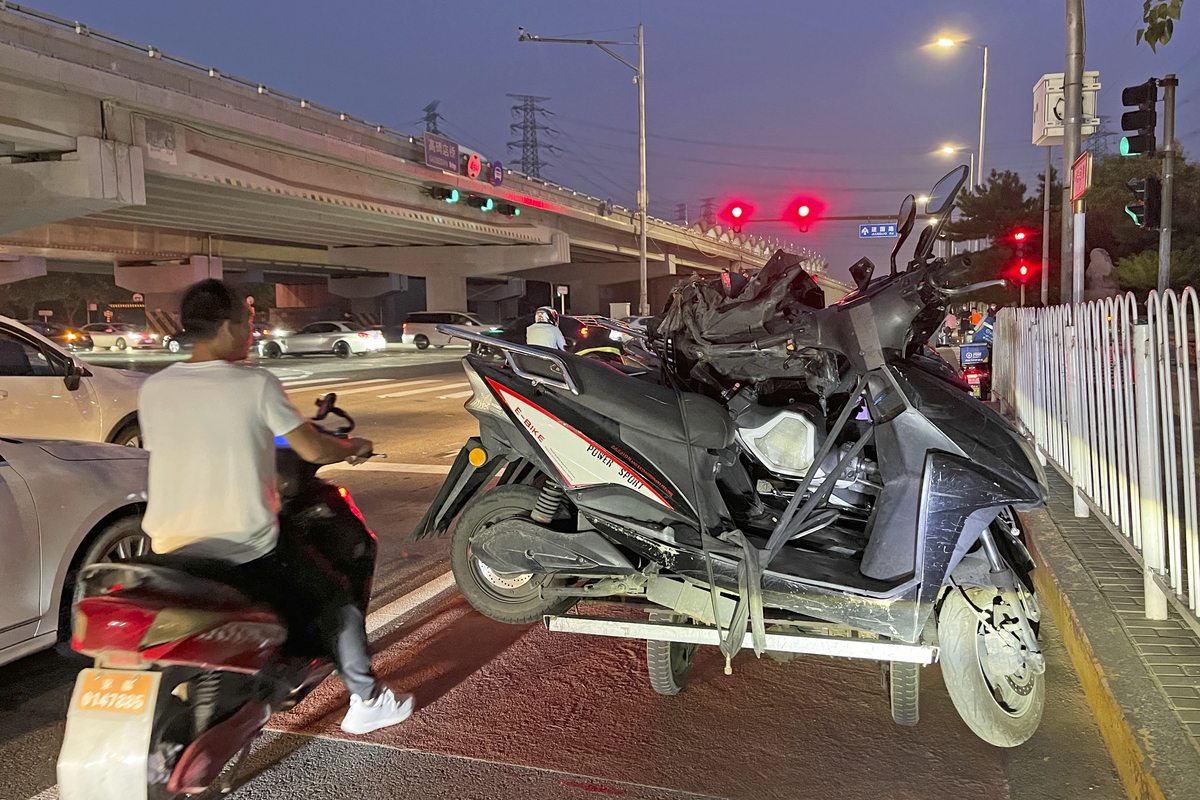Retiring e-bikes breathe renewed life into retailers
By LIU YUKUN | China Daily | Updated: 2021-09-22 09:57

For Chen Hui, manager of an electric bicycle shop in Chaoyang district, Beijing, the past few months have been a breakout sales period.
"We sold about 15 e-bikes per day on average, with per unit prices ranging from 2,000 yuan ($309.53) to 4,000 yuan. We can foresee an even busier selling season in the coming two months as several e-bikes in the market that may fail to meet standards will be forced to retire by Oct 31 and users will have to buy new ones," Chen said.
He was referring to Beijing's regulation on such vehicles released in 2018. In that year, the city issued temporary identifications represented by orange number plates to e-bikes that did not meet market requirements. Such e-bikes will not be allowed on the roads after a three-year transition period that expires on Oct 31 this year.
A total of 2.14 million temporary identifications were issued to e-bike owners from Nov 1, 2018 to April 30,2019-a time frame set by the municipal government, according to The Beijing News.
These e-bikes are about to retire in the next two months in Beijing, posing challenges as well as business opportunities in recycling and disposing, experts and industry insiders said.
E-bikes that do not meet market requirements include those with an overall weight exceeding 55 kilograms, a top speed of over 25 kilometers per hour, a motor power of more than 400 watts and a nominal battery voltage surpassing 48 volts, according to the State Administration for Market Regulation and the Standardization Administration.
The requirements were set to avoid risks of injuries when users ride e-bikes, according to the Beijing Municipal Commission of Transport. The commission said overly heavy e-bikes could affect braking performance and threaten the safety of riders.
In addition, overly fast e-bikes could also influence vehicle stability and braking performance, and also affect rider judgment and reaction times, which often cause collisions, according to the commission.
Moreover, unqualified e-bike batteries have risks of short circuiting, which could lead to facility damage and even fires, the commission said.
In the first quarter since e-bike sellers started trade-in promotions through which users exchange a used e-bike in partial payment for another, about 100,000 e-bikes were traded in at sales outlets across Beijing, said Beijing Daily.
At present, there are over 800 e-bike sales outlets in the city that are launching trade-in activities, along with other sales promotional methods like offering discounts for new e-bikes.
"We have abundant storage for qualified e-bikes. Beijing's move to retire e-bikes that do not meet requirements helps to guarantee user safety, as well as bring more business opportunities to us," Chen said.
A report by The Beijing News noted that about 4,200 e-bikes were traded in at sales outlets across the city per day on average. Many e-bike outlets have seen their sales double in recent months.
A recent poll by the newspaper showed that currently only some 30 percent of residents have dealt with unqualified e-bikes. About 40 percent have such plans, and the remainder still have a "wait-and-see" attitude. Among ways of handling retired e-bikes, trade-ins were the most popular option.
For end-of-life e-bikes that are not eligible for trade-ins, they can be recycled at 86 service centers across the city. The local government has released a list of qualified companies specialized in renewable resources recycling and lead-acid battery recycling.
Lead-acid batteries are a major type of power batteries for e-bikes.
"If handled improperly, toxic substances like lead can leak into the environment, which cause pollution and threaten humans," said Lin Boqiang, head of the China Institute for Studies in Energy Policy at Xiamen University.
Lead and sulfuric acid, two main components of lead-acid batteries, can contaminate soil and ground water. The former can affect health conditions of people, particularly children, while the latter is highly corrosive.
























